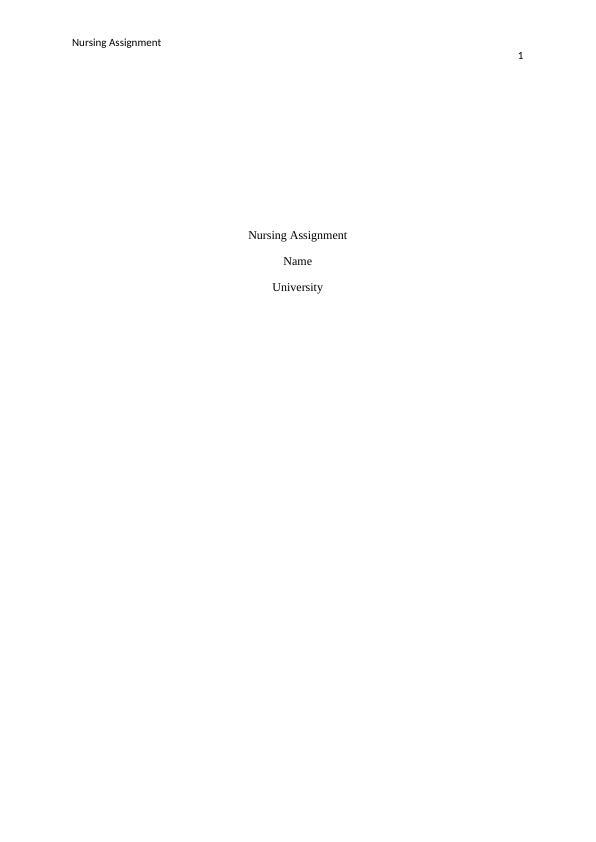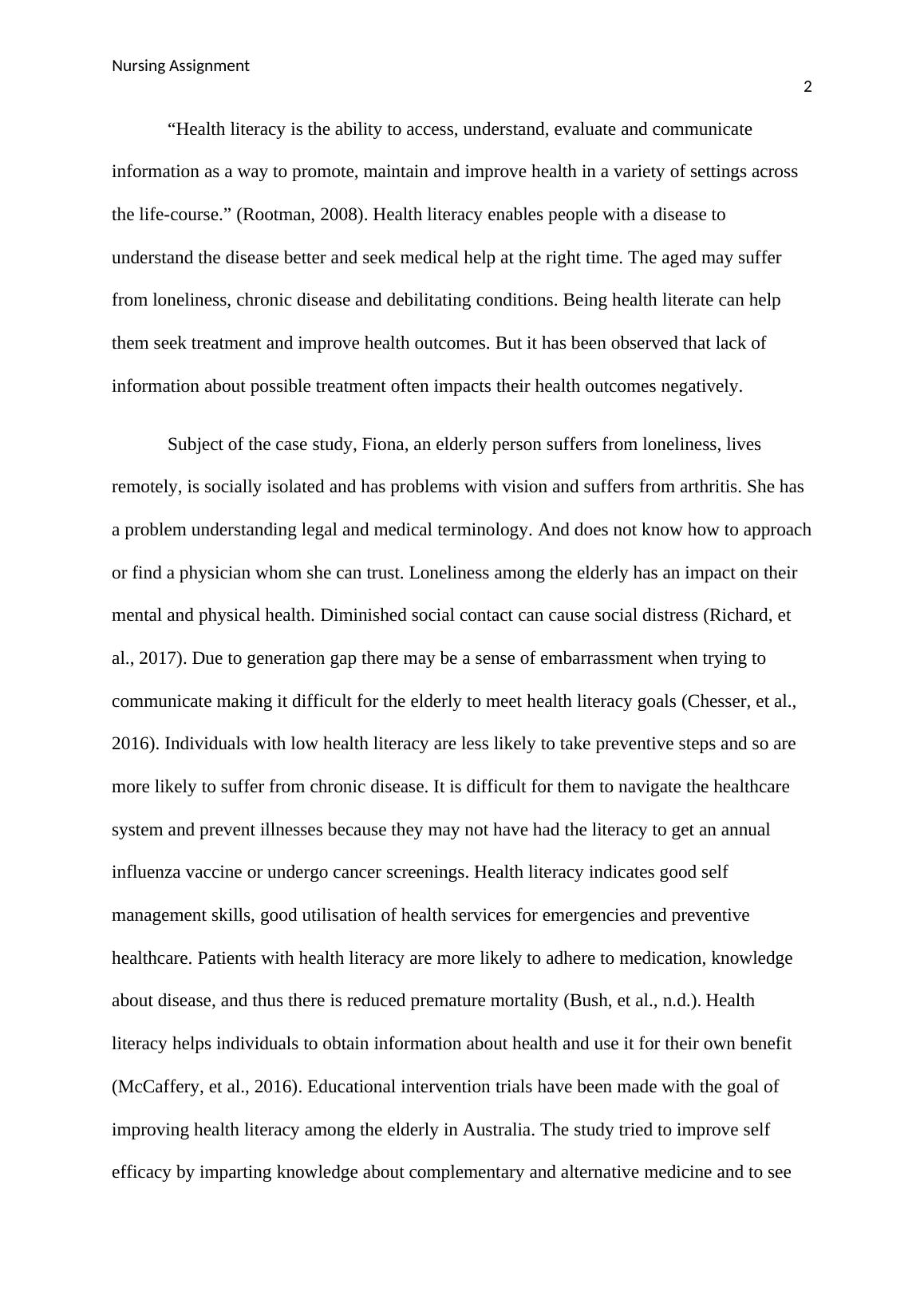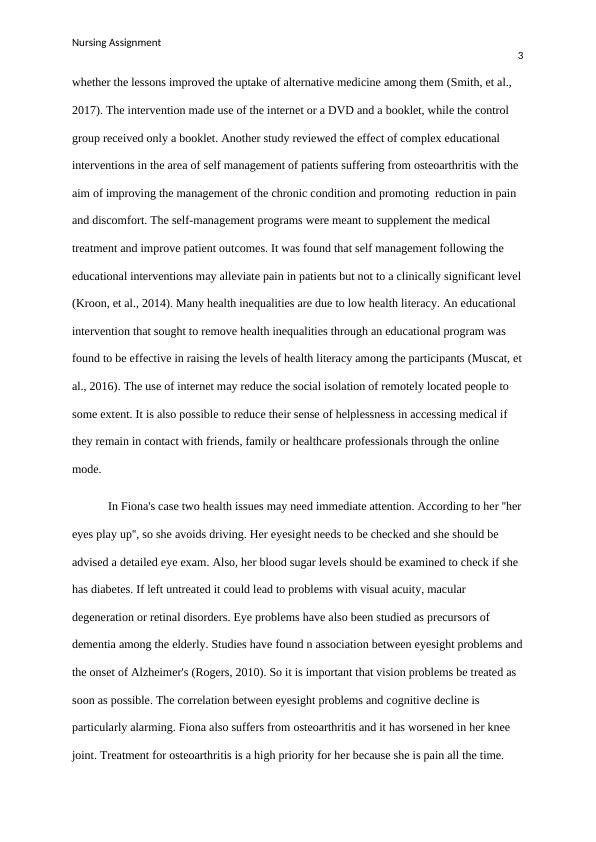Health Literacy and Elderly Patients: A Case Study
8 Pages2299 Words282 Views
Added on 2023-06-07
About This Document
This case study explores the impact of health literacy on elderly patients, with a focus on a specific case. It discusses the importance of health literacy, the challenges faced by elderly patients, and potential interventions to improve health outcomes.
Health Literacy and Elderly Patients: A Case Study
Added on 2023-06-07
ShareRelated Documents
End of preview
Want to access all the pages? Upload your documents or become a member.
Improving Health Literacy among Elderly People
|4
|684
|86
Improving Health Literacy Among Elderly People: Design Principles
|6
|330
|271
Nursing - Assignment Sample
|9
|2234
|19
Healthcare Promotion And Chronic Disease
|7
|1707
|37
ALTERNATIVE THERAPIES.
|12
|3351
|1
Heart Failure (HF) Patients Topic 2022
|3
|1608
|11



